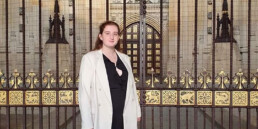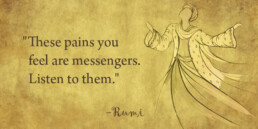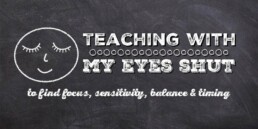A Tale of Two Ofsteds
An anonymous guest blog.
In the last 12 months I have had the pleasure (not always) of working in two comparable schools within the same local authority. Both schools, of similar size, face challenges based on the area they serve and the deprivation of their cohorts. Similarly, both schools have recently undergone Ofsted inspections and unfortunately on paper they are both graded the same.
It is in this respect that they are not comparable.
One of these schools is still promoting outdated pedagogical practice and using learning walks and book looks to terrorise and intimidate staff. Particularly when the most feedback ever given to a group of books is 'Why haven't you differentiated the task 5 ways in your lessons?'
In addition, practices such as printing out your planning every week to display in your classroom, ensuring your displays are all triple backed, triple marking every single book every day and not once providing CPD in staff meetings and INSETs were just accepted as normal. Teacher mental health and wellbeing was not mentioned and I was once in a situation with a senior leader where it was actively dismissed. All of this before you even start to unpick curriculum design, sequencing and intent. Needless to say, it was thin in all areas and in many non-existent.
In complete contrast, School 2 has invested serious energy and time into teaching and learning with weekly staff development sessions, a coherent and consistent curriculum threaded through with actual evidence and research and clear explanations for decisions being made and followed through. Staff are supported; their time protected and decisions made so that even when expectations are high, workload can still be manageable. The culture at this school is quite frankly, refreshing. People have professional discussions and engage in their practice on a deep level with a focus on achieving high outcomes and experiences for the pupils. Every decision is carefully crafted and has strong fidelity to the core vision and values running through the school. Most notably, staff well being is acknowledged and there is no culture of ‘it’s a tough job, you just have to turn up’.
Don't for a moment think that I am claiming perfection for School 2 as that would be frankly naive but the difference is extraordinary when compared to School 1. With Ofsted looming, the message from School 1 was 'do more on your displays, marking and make your lessons jazzy'. Staff were required to have Ofsted ready lessons for the moment the call came. School 2 was required to carry on with showing what we do on a day to day basis. It was still stressful and exhausting but in no way was it insincere or disingenuous.
In School 1 a weekly staff meeting was billed as ‘CPD’ and staff were asked to create a mood board in their year group teams. All of this the night before a ‘mocksted’ and needless to say said mood boards languished at the back of cupboards proving to have little impact on students or staff development. In School 2, weekly staff meetings are focused on a specific area identified to impact pupil outcomes. For example using the EEF and other sources to identify what effective feedback is and how teachers can use this practically in lessons. This short summation above does not even do justice to the complexity and depth of the CPD delivered in practice over a number of weeks.
My question is: then how can these two schools be graded the same? School 1 had one inspector for 2 days and has a thin report of two pages stating it is 'good'. School 2 had 3 inspectors who were still there at 6.30pm on day 2 meeting with leaders and was also rated 'good'. The two are not comparable. Not comparable by the experience of staff working there, nor by the pupils turning up each day. Not by the parents and community surrounding it or the curriculum delivered.
There is so much dialogue around accountability and Ofsted ‘ramping up inspection rates’ but in essence if we are not using the same rigour we expect teachers to apply in their teaching to the inspections of such are we not just permitting poor practice to continue unchallenged? I, for one, have escaped the tortuous delivery of VAK learning styles needing to be incorporated in every lesson but if Ofsted perceive that as ‘good’ then there must be others still drowning.
Image by fabrikasimf on Freepik.
The Joy of Headship
A guest blog by Sarah Hussey.
Teaching is tough, headship is hard – those of us who work in education know these things to be true! As a head teacher of 12 years and counting I cannot argue with these facts. Yet… I find sheer joy in my job pretty much every day. How you might well ask? By changing the narrative.
In 2019 a heady mix of many factors led me to be signed off work with chronic stress and anxiety for almost 6 months. Impending inspection, results that were far from ideal, managing staff, budget worries, a pretty hideous parental complaint that had me filing harassment charges with the police, and let’s not forget being peri-menopausal (that needs a whole blog in itself!). I was well and truly done and took to my bed where I stayed for some time! Then we had the first lockdown - a truly surreal time for us all.
I am happy and I love my job.
As I write this I am less than a week away from returning to school after our well-deserved break. I still have an impending inspection (God, I wish they would just get it over with), even more budget worries, and concerns about how my families and staff are going to survive the cost of living crisis. These are just a few of the things that are running through my mind. My mind, however, is at least working now as the wonder of HRT has defeated the damned brain fog and anxiety. But, I am looking forward to the new term. I would go as far as saying I am happy and I love my job. How have I got to this position?
The one thing about being mentally at rock bottom is that you can only move up again: I learned the hard way.
The one thing about being mentally at rock bottom is that you can only move up again. I thought for a few months that my passion, the fire that burned in my belly about doing the right thing for all our children had been extinguished and that made me really sad. The truth was that it had become a tiny, flickering ember which grew as I began to feel stronger. Now, I am not advocating that anyone should become this ill because of a job: well-being is vital and should never ever be an afterthought or a bolt on to your curriculum. I learnt this the hard way.
Dig deep and remember your values.
When things get tough you need to dig deep and remember your values – your reason for leading your school. I don’t mean the values that NPQH tell you to have; I mean the things that make the fire in your belly stay alight. I do this job because after 25 years in education I still believe education is a right for all children and can and does open up their world. I believe that a good school is a place where children, their families and your staff feel that they belong. The core of a good school is not necessarily zero-tolerance uniform/behaviour policies etc. It is relationships. Without these, progress will never be made.
Change the narrative – flip that switch.
I know it is tough and I know there are days when you would rather be doing anything but running another parent’s session about phonics or internet safety, but if you try to change the narrative, flip that switch in your head, it can and will make a difference.
What a privilege it is to be in this position.
When I complain about being all things to everyone - teacher, mental health worker, social worker, counsellor - I remind myself what a privilege it is to be in this position. We cannot change the lives of all our families, but we can go some way to helping them. Sometimes just listening to them is all that is necessary. Our support can lead to a family leaving an unsafe home and changing their own narratives. How wonderful that we can have a hand in creating excellent teachers, either being a part of their training or their ECT years. That is the future of teaching in our hands. Don’t you get an immense feeling of satisfaction when a learning support assistant grows in confidence, learns from your mentoring and the CPD you provide, and goes on to become cracking teacher? How amazing is it that we can encourage the curiosity of our children, that we can teach them to read, which opens up the world around them. I love it when ex-pupils come back to tell us what they have achieved and tell us about the part we played in that – priceless. In what other job can you leave the boring paperwork on your desk and go and find thirty four-year-olds to play with. Their energy and view of life is really inspirational!
I allow my staff to attend their children’s first day at school, their school plays and concerts and their graduations – they are special memories to be treasured.
Headship is a hard job. One of the ways to do it well is to learn not to listen. Don’t go ignoring everyone, but learn to choose the information that you think is important. Don’t be tempted to try every new initiative and if someone from your LA comes and tells you how to do something, ask them to show you the evidence it works. Remember no school is the same and your context will be different to others. Do what feels right for your school community. For me, the number one tip is look after your staff! I don’t mean organising meditation sessions or yoga with puppies, I mean creating an atmosphere of trust and support. Listen to them, let them know that you care but that you also care about the children. I started teaching when my daughters were very young. My head teacher would not allow staff time off for anything other than a funeral of your closest relatives. When I left an abusive relationship, I was given half a day to find somewhere for myself, the children, and 2 kittens to live! So, I allow my staff to attend their children’s first day at school, their school plays and concerts and their graduations – they are special memories to be treasured. It is worth it – for the one or two staff that might take the mickey, the rest give you their best every day of the week. They will enjoy working at your school in the environment that you have created.
If you want to do it, you can!
I cannot tell you Headship is the best job in the world (I mean being a cocktail taster on a Caribbean island sounds pretty good!) but I can tell you it is wonderful. It is joyous and I still love it. Don’t be put off by the bad press and those stories that you hear from others in the job. If you want to do it, you can! You can be a good head teacher and have a work life balance – but you have to do it your way and with integrity.
Golden Seams
A guest blog by Aini Butt.
We live in a world where achievement is applauded not the progress itself; beauty standards are set by the finished product and any imperfections are filtered out. So those who are seen as ‘broken’ or ‘wounded’ are told to ‘take your time to heal so you can move on’ or ‘heal and find your old self again.’ Even with the best of intentions when saying something to encourage or motivate others, are our words empowering or reinforcing society’s romanticised vision of healing?
Healing from painful, life-changing experiences is far from romantic and often there is no way back to the ‘old self’, and this is where I question this need to ‘heal and move on.’ It focuses on the past to form a different future; how is this possible when you fail to acknowledge the present?
During a long conversation with a dear friend, we looked back at our similar journeys and revisited our younger innocent selves. As the saying goes, ‘Ignorance is bliss,’ and it sure was until the blessing turned into a curse and became a tool of torture used by those who were supposed to reciprocate the trust and love they were entrusted with. Is this the former self we are told to return to? Is that what ‘finding yourself’ means: to laboriously dig through the rubble of your past to find yourself broken into smithereens under the weight of your dreams and desires, and ‘take time out to heal’ in order to become whole again?
The Japanese art of Kintsugi (golden seams) teaches us the valuable lesson that there is no return to the ‘unbroken’ past; therefore, there is no attempt to hide the breakage either. Instead, lacquer and gold pigment are used to elevate the broken piece. Often, this art is drawn upon to reiterate how our imperfections make us unique and more beautiful. What if this isn’t about the finished piece and the beauty of its shining gold? What if the golden seams are telling the untold story of the creator’s expertise, which reached new heights of craftsmanship with each mended piece? Again, those who will see the finished piece, will congratulate the artist on their creation’s beauty, but the struggles of finding the appropriate tools and resources needed to mend the broken pieces often remains untold.
Similarly, stories of those who are on a journey of self-healing often remain untold. We are so focused on the destination, which we often refer to as ‘finding ourself’, that we fail to recognise that the ‘self’ is not the end outcome in the distant future. It is the work in progress in the here and now- the present. Those who are on a journey of self-healing through self-discovery will know that it requires honesty and courage to recognise that there is no return to the past. They take this as a motivation to continue reflecting however hard this may be without blaming the past for their present.
If I were to go back in time and meet my younger self, I would tell her that her decision to leave the safety of the shore to sail into the unknown was life-changing, and if it weren’t for her determination and resilience, I wouldn’t be where I am today. We are so quick to judge our past decisions and actions by discarding them as our ‘coping mechanisms’. Upon reflection, there have been many habits I adopted to help me with the aftermath of being in an abusive marriage: toxic productivity; extensive workouts and controlling food intake; periods of extreme highs and lows, and maybe some more I still have to uncover. Although these coping mechanisms were unhealthy, I cannot ignore the fact that they got me to where I am today. Instead of blaming myself and living in regret for adopting these habits, I have learnt to accept their use in the past as a way of self-defence.
Acceptance comes from self-love, which wouldn’t have been possible without the promise of loving myself like I would love those who are dear to me. However, this same self-love demands reflection and the recognition for a more compassionate approach as resorting to old habits, thoughts and beliefs will only drag me back to the past. This is the part of healing we find too shameful to share when those around you can’t see your internal storms. The struggles of constantly rephrasing the critical inner voice because silencing its message is not an option anymore. On days when it whispers the worst-case scenarios, you learn to look for the roots of this fear and slowly become more compassionate towards yourself.
Often the hardest mountain to climb is the one when you journey within, where you find fragments of your former self buried under the weight of guilt and shame. Are you able to let your tears flow without shaming yourself or have you restrained yourself behind these bars of strength? If you desire to break free from this self-imposed cage, you will have to sit with the guilt you have harboured and only through the flood of tears will you rephrase the message of your inner voice.
These times of inner turmoil will be the moments where your expertise is further enhanced and your craftsmanship will allow you to mend your pieces with golden seams.
Image from https://art.thewalters.org/detail/10841/bowl-28/
Matter over Mind: Trusting Your Body
A guest blog by an anonymous Early Career Teacher.
Most of my education and my upbringing focused on the mind. School, sixth-form, university taught me how to interpret, how to explore ideas and how to critically analyse the world. Developing the mind was always the focus point. Whatever decision I made, whether academically, personally or professionally, I thought it through. Thinking is an analytical process, one which takes time and effort. It also requires the very same skills that my education has taught me; interpretation, exploring ideas and critical analysis. These are undoubtedly important skills and I’m very grateful for having learnt them. However, having recently made a thought-out decision which later turned out to be a very difficult one, I realised that I neglected another meaning-making and interpretive vessel - one which is just as important - and that is my body. The body makes decisions just like the mind, and yet I’ve never been taught to listen or trust my body in the same way.
Last year, I went to interview at a London school which had an Outstanding Ofsted rating. It had an interesting and diverse curriculum, and my PGCE tutor knew the school a few years back and had recommended it to me. On paper, all seemed good. When I entered the corridors, I remember it being chaotic and busy. Students everywhere; some running, others throwing basketballs. There was a frantic energy in the air. My interview lesson was just as energetic; some students were keen to get involved and answer questions while there were others who had their heads down sleeping on the desk. Looking back, I was very naïve to ignore the signals that rightly suggested that this school was in a difficult phase of its journey. Yet my mind kept rationalising: “every teacher I’ve spoken to speaks positively about the school”, “I trust my PGCE tutor”, and “this is rated Outstanding”.
As I left the interview, my body felt unsettled and uncomfortable. I remember having a tension in my stomach which I couldn’t explain. While I recognised the discomfort, I neglected to listen to it and, ultimately, I trusted my rational mind over my “emotional” body. I started working at the school in July, and it was a very challenging experience. I felt the toxicity of the school start to take over my life, and my mental health became damaged as a result. Ironically, it was often my body that was affected. I rarely had the energy to exercise, and I started to have panic attacks and night-sweats. I often look back to that moment of discomfort and wish I had listened to what my body was trying to tell me.
I left the school in April and decided to do a Flamenco course in Seville. I had no experience with Flamenco and I had no idea what it even looked like. Naturally my friends and family were pretty surprised at my choice, and honestly so was I. Perhaps without consciously realising it, I chose a course focused on the body; how to listen, respond and physically self-express. Every lesson, my teacher would shout “FUERTE” (strength) to remind us that our bodies are our core and it is within our anchorage, our root, that we find power. It was the first time where I was taught how to tap into and navigate the language of the body. I realised how often I curl or twist my body in a way to hide it or make myself smaller, but Flamenco taught me the opposite. It’s about opening up, letting your physical presence be seen and felt. Through this dancing, I actually recognised and listened to my body, and allowed it to be open to the world. We need to trust our physical responses and intuitions just as much, if not more, than our rational and critical mind. Our body is a meaning-making vessel that can tell us much more of our authentic selves, desires, decisions, than our mind can. My biggest lesson I’ve learnt from this challenging teaching experience is to trust my body more and, in doing so, allow my body to carve the pathway where onto next.
Finding My Work-Life Balance as a New Teacher
A guest blog by an anonymous Early Career Teacher (ECT)
I’m coming to the end of my first year of teaching – it’s had its ups and downs, but I’m pleased to say, mostly ups. Being a trainee teacher last year was tough and I struggled to balance the demands of the course, my school and my relationships. Oh, and a pandemic as well. The idea of a work-life balance remained elusive. So, I made a promise to myself to prioritise wellbeing this year. And it has been better. I implemented various strategies that some very wise people have taught me along the way. I’m sharing them in the hope that any trainees out there who have just picked up their shiny QTS certificate can do more than just survive their first year.
Emails – The single, most useful thing I’ve ever done for my sanity is turn off my emails on my phone. It was like my stress levels went through the floor overnight. No more checking them last thing before bed and then subsequently staying up all night because a parent emailed and wants to meet with me ‘urgently’. Whatever it is can wait until I’m sat at my desk in school with a cup of hot tea, ready to face the day. I wish I’d done that from day one.
Communication - Being open and honest with your mentor or induction tutor is a key thing - let them know if you're struggling with how to manage workload/students/parents. Don't make the mistake of trying to take it all on from day one because you’re afraid experienced teachers will look down on you if you don't. Staff are there to support you and help you build a healthy work life balance for yourself as they need new teachers to stay in the profession for as long as possible. There's always help at hand. Some of my department even helped me mark some papers this term when I was swamped with reports and no gain time. There are people who are sympathetic to new teachers (and take those who aren’t with a pinch of salt!). Just keep communicating your workload and tell someone ASAP if you’re worried about meeting a deadline. You'll build respect far more quickly than trying to cover up mistakes. And you WILL make mistakes! But don't beat yourself up about them. You're still learning.
Communicating with others in your department really helps too. It was very tempting to be in my shell at the start, particularly as everyone else is so experienced in my department, but I quickly learned that EVERYONE has an odd chaotic lesson, or a challenging parent, and sharing this at break times helped me learn coping strategies and I found it easier to 'let it go' at the end of the day, rather than take it personally. Also, for some subject knowledge questions, it's far quicker and easier to ask someone at break rather than research or try and figure out the answer alone - even experienced teachers sometimes have to think about A level questions!
ECT work - Set aside one hour a week of your in-school timetable dedicated to ECT work. And stick to it. It's very easy to let this slide when you have lessons to plan, tests to mark and parents to email, but it's a slippery slope if you get behind. Doing it in school gives you a cut-off time before the next lesson and you’ll get it done quicker. It may seem like a waste of time at first but be open to more efficient ways of working and it will save you hours of work in the long term by improving your practice.
Environment - Think about where you're working on a task - I love my department, they’re like a second family, but I know I will be able to mark twice as many papers in a quiet classroom or corner compared to in the office when everyone’s on PPA.
Hours - Give yourself a cut-off time at the end of the day and think realistically about how many hours a week you are working. Everyone will have a different working routine but everyone needs a break too. I find it’s helpful to actually write in my evening/weekend activities, the stuff I do for me, in my teacher planner, so that I actually do it, and I have to fit work in around it, not the other way around! You will be far more valuable to your classes the next day if you have had a good sleep and something to eat (even with a very sparse lesson planned) than if you have stayed up all night planning. Similarly, on a 5-period day, allow yourself at least a proper break time and a fairly free lunch. Physically remove yourself from your laptop and get a cuppa, have a chat with a colleague or go for walk. Emails can wait. You will be glad of this by the time Period 5 comes around.
September nerves - Lastly, the biggest shock to the system is September as a new teacher (or quite possibly any teacher?!). Make some time to just be in your classroom(s) before the students descend. I personalised my room with some maths bunting and organised the stationary cupboard. This seems like a small thing, but having a sense of place helped me visualise teaching and took off some of the pre-performance nerves.
Be prepared with behaviour management strategies and how you’re going to set expectations and embed routines but don't spend all summer planning perfect lessons in minute detail for the whole first half term. I was told this and yet I still spent well over a week planning lessons for classes I’d never met because I thought I’d be getting ahead. I scrapped and re-planned these as soon as I met my classes. I know it feels like you’re about to go white water rafting without a kayak, but a lesson will take three times as long to plan when you don’t know the class. Have a few, flexible activities prepared that have a focus on getting to know your classes, but don’t go overboard. Your summer holiday is far better spent relaxing, recharging and preparing yourself mentally for the task to come.
Pebbles photo created by rawpixel.com - www.freepik.com
Missing My Stop
A guest blog by Abigail Gray.
In my second year of Deputy Headship, on the first day of the Easter Holidays, I found a lump in my daughter’s left thigh. She was 4 years old. In the days that followed, after a succession of hospital visits, scans and a biopsy we would discover that it was malignant.
I was sitting on my bed at home when I took the consultants call. I watched my reflection change in the wardrobe mirror as he spoke. It was one of those grey days in Spring, the sky had been threatening rain all morning. I remember looking around the room and feeling complete confusion, how could everything look the same and be so different?
I’d love to say that what happened next was a blur but it’s not. The memories are chiselled into me. From the moment I put down the phone I experienced a kind of separation, two parallel reactions: one internal and one external. She was in the next room recovering from the operation. I had to get on with the day, dress her, make lunch, we had to get to the hospital and of course I’d have to call her father and then my parents to break the news. I chose to swallow the shock, my tears and save the anguish until later.
Growing up in Bermondsey had taught me that there were few qualities prized more highly than resilience and discretion, especially amongst women. My grandmother was the wife of a docker who raised 6 children in a council flat; she survived war, poverty and breast cancer. She was a stoic, with beautifully set hair and quiet authority. The astonishing women who raised me endured their generous helping of suffering in quiet dignity. How could I be any different?
At work I’d witnessed desperate things. I’d worked with terminally ill children, children abused and abusers, children looked after who most certainly had not been ‘looked after’, children who had slipped through all the massive holes in all the nets to find themselves without options, hope or indeed literacy. Consequently, I found almost no space for my own anger or grief about my daughter’s illness. I couldn’t let myself feel it. I couldn’t ask for help. In fact, I used my work to avoid it.
Not for the first time, as work had long been a refuge from the acute anxiety that had plagued me from infancy. It was easy to translate this into a positive, this ‘work ethic’ had taken me from TA to Deputy Headship in less than 10 years. There were so many great names for it. People talked about my passion & drive, my focus & commitment. The fact was work was my Prozac. It was my salvation. Not the kind of salvation that comes in a haze of warm light and brings peace but the kind that keeps you fighting another day, crawling along, like the last zombie in the movie.
I found the daunting thing about childhood cancer was not just finding a way through the actual illness but finding a way to live in the spaces between. Watching and waiting was such a big part of those early years. Every childhood scrape and illness promoted a deep-seated anxiety in me. In those moments, I often felt completely alone and crushed by the responsibility. I don’t think I realised how much energy it took to reconcile my love of being a mum and the ever present, doom-laden presence of ‘the cancer’.
As my blood pressure started to rise, I took the medication and changed nothing. I buried myself in work all day. In the evening I’d be with my daughter, lay next to her each night and stroke her head until she was asleep. Afterwards, I’d pour myself a pretty huge glass of wine, cry and write.
I actually wanted the people around me to think I was coping. I was convinced that the satisfaction of doing right by them would ultimately sustain me. I believed that I’d make it to the other side. When, in fact, there was no other side.
10 years later I hit the wall with literally nothing left in the tank. Shredded, sleepless and exhausted while being paid the highest salary of my life in a job I thought I loved. The realisation was sudden, like looking up from your book on a train journey and realising you missed your stop. What else is there to do but get off?
It wasn’t therapy that helped me, it was habit change. I was forced to acknowledge my needs and attend to them. More than anything, I just needed to sleep. After that I took the revolutionary step of describing what I wanted my life to look like. Then it was just planning how to get there. Personal and professional goals intertwined for the first time.
I realise now that there are different kinds of courage. Just because you have one kind doesn’t mean you have another. I was afraid to imagine what I really wanted, to listen to myself, to say no, to ask for help. It’s my daily challenge, a habit that I practice. Like Adriene Mishler says at the beginning of her yoga classes, ‘The hardest part is showing up.’
Postscript
I’m very happy to report that my daughter is now 23 and overseas, embarking on the next exciting stage of her life. I am deeply and daily grateful to be her mum. She is phenomenal. We are, of course, forever indebted to the wonderful doctors and nurses at both Guy’s and The Royal Marsden Hospitals.
My heart goes out to all the mums and dads that face into this struggle, I wish you all the love and strength in the world.
Leadership Unmasked
A guest blog by Aurora Reid.
It’s time I wrote about my own mental health…. Actually, I started this blog in December so it’s really time I did. I wrote those first words at the end of a dark rainy term in London and I finish it in sunny June in a very different emotional state. I have made choices, to move on from settings and roles that don’t serve me and prioritise my own wellbeing. Nonetheless, the same question is still permeating. How do I express my own vulnerability as a leader, whilst keeping myself and others safe? How do I talk about my mental health in a way that frees others and doesn’t set unrealistic standards but doesn’t get me labelled as weak, lacking resilience or ineffective in some way?
Having taken a year out to prioritise my physical and mental health, 6am rainy starts out of Waterloo station and days of running (again) from meetings to class to duties to paperwork to conversations with families or training for staff and then home again (in the dark) came as a real shock. My alarm system flares up. Sometimes I can’t sleep, sometimes I can’t get up, sometimes I can’t stop thinking, sometimes I can’t stop crying, sometimes I don’t have any motivation to do anything at all except look and my phone and eat junk. There’s plenty of labels you could put on me and yes, I definitely need support in these low moments but ultimately it’s not my system that’s broken. I am having a perfectly health response to a dysfunctional education system and world.
It feels as though staff and students are more dysregulated than ever. School refusal, teacher attrition and mental health rates are through the roof. The response? More pressure, both from below and above. Everyone seems stretched to breaking point. This affects me, no matter how much meditation I do or books I write on the subject, I am first and foremost human. The research on interpersonal resonance and coregulation confirms what I know instinctively. That is, if I am in an unhealthy environment, I will feel ill.
Before I would’ve masked it, “put a brave face on” to “stay professional” but having written a book positing a mindful approach leadership, that recognises our limits as leaders, I feel a duty to talk about it. With my teams and more publicly. How else are we going to destigmatise mental ill health? How will we be able to recognise our ups and down as normal or feel permission to ask for help when we need it, if it’s not modelled? If people don’t first tread the path for us?
But as a leader it is really freaking scary. We are supposed to be the container, to have broad shoulders, to be able to hold people and so if we signal to the teams that we lead that we are not okay won’t they feel deeply unsafe themselves? Perhaps. It depends on the culture you have in your organisation. There are plenty of environments where it’s not completely safe to be vulnerable (in fact the internet where this blog is going not least). Nonetheless, it will take people speaking out to change those cultures. In fact, to paraphrase Margaret Mead, that’s the only thing that ever will.
Yes, some bosses will see you as weak and yes, some insecure members of the team may feel at sea if you are not completely solid, one hundred percent of the time. However, if you don’t make space for yourself now it will be a hell of a lot worse later down the line. What is more, for most, demystifying yourself as a leader actually makes you more approachable and the path to leadership look more attainable (because people see that you are not superhuman). Perhaps, most of all though, by modelling self-knowledge and self-care you make space for others to do so for themselves. In time hopefully this will lead to the kind of culture change that means that not so many people will need to break in the first place. If we were to start from a place of true inclusion, one in which we prioritise making our schools emotionally healthy places where everyone (including staff, including leaders) can break a little when they need too, then no one will ever have to truly break.
Learning to Unlearn
This blog is reproduced here with permission.
Written by Aini Butt on her blog Aini's Reflections on 9th June 2022.
“Why do you do this to yourself?” my friend laughed.
It had been a painstakingly slow start to another piece of art as I had spent over an hour calculating where each letter of the Quranic quote would start and end. Anything less than perfect wouldn’t be right, I kept telling myself every time I had to start all over again. This was my first attempt at Arabic calligraphy on a large canvas and I couldn’t let myself down. During the several hours working on the art, I kept coming back to the question, “Why do you do this to yourself?” This suggests that it is my choice and within my control to change this thought that anything less than perfect would not be acceptable. If this were to be true then surely it is just a matter of unlearning this belief?One thought led to another; a reflective process was set in motion.
Like a mirror that reflects everything, the inner reflection exposed parts of me that I have been trying to filter out. One of the most important and most difficult things to accept was how control and emotional manipulation had changed the younger me and her perspective on life and what success truly meant. If this were the case than ‘finding myself’ was not going to be about return to who I was before. It would require a deeper exploration of the emotions to understand the values and core beliefs underpinning those thoughts and behaviours that allowed me to stay in a place where I had lost myself. Therefore, it was not about learning new ways of life, but recognising those beliefs and habits that I would have to unlearn to be at peace with myself and finally living my motto to ‘Bloom Unapologetically’.
As I learnt at the beginning of my reflective writing journey two years ago, unconditional loyalty and blind love were one of the core beliefs that did not serve me well for almost fifteen years. Slowly unpicking where and when this belief had been ingrained and became a core value, I realised that this was just the tip of the iceberg of generational curses. We are often brought up with set of core values. Some are taught verbally and silently reinforced through the witnessing and practising of daily habits while some are formed as result of a lived experience.
One habit that I am slowly learning to change and avail to my advantage rather than letting it become a self-sabotaging behaviour is ‘over-thinking’. To this day, I do not like to call anyone (or myself) an overthinker as it has such negative connotations. It was after a chat with a friend who was struggling with ‘over-thinking’ that I started digging deeper. I have often beaten myself up for being an “over-thinker” and I have played conversations and situations over and over again in my head until I could picture the catastrophised version. I was taught to always think of the best and worst outcome as it would allow me to make informed decisions, which served me well for several years. However, this same habit ended up feeding the distorted reality following on from living with coercive control and emotional manipulation for over a decade. Where I had silenced my inner voice for so long, having the ability to listen to my thoughts and feelings without distortion gave me a new sense of freedom.
However, I had to attune my listening skills and adapt by unlearning the habit of thinking of every possible (often disastrous) scenario. Although unlearning of habits ingrained over the years does not happen overnight, it was nothing short of an epiphany when I was able to recognise its origin. It was during one of my ‘over-thinking’ cycles, which I prefer to call self-reflections, that it finally hit me! Visualising the catastrophised outcomes allowed me to create a mental and emotional comfort zone with boundaries to safeguard me from further harm. Recognising the hold my past had over my present was painful, but ‘These pains you feel are messengers. Listen to them.” Rumi’s pearls of wisdom had never made more sense than today when I could feel the pain and its hidden message: forgive yourself! Forgive yourself for those habits that were merely a survival mechanism- your mind and heart’s attempt at safeguarding you at all cost.
The truth was that the emotions were merely a messenger and it became even harder when the emotions were in direct conflict with each other. If I didn’t want to continue living my life in survival mode, I had no other option than to unlearn this habit.
Almost two years on and it has been a journey far from easy and I now accept that I will be a work in progress for as long as I continue to strive for a better version of myself.
Teaching with my eyes shut
A guest blog by Sarah Ruse – Eyes Shut Teacher @eyesshutteacher.
I’ve been teaching in Scotland for over 12 years now having changed career in my 40s. I’m not an expert but I do have some experience. I have worked in schools with rolls of 15-400+. I’ve taught composites, multi composites, NCCT, probationer & PT cover, job share, full time and part time. Like everyone else I’ve had a wide range of additional needs to include. I’m not teaching with my eyes shut because it’s easy for me, although there are some shortcuts that I‘ve discovered and am happy to share.
I’m also not teaching with my eyes shut because I want to ignore what’s happening and I’ve had enough of teaching. I care deeply about what happens in my classroom and how my learners are impacted by it. I’ve spent a lot of time and effort building my teaching toolbox, researching effective methods and increasing my understanding to support for pupils experiencing barriers to their learning. I endeavour to run a kind and nurturing classroom where all can flourish. However my focus is classroom work, I have no aspiration to lead although I support my SLT as much as I can (see teamwork below).
Teaching with my eyes shut came to me late on a damp Saturday afternoon. We’d finished the chores and put on an action movie. I thought it looked interesting at first but they all merge into one after a while so I started scrolling through my social media whilst keeping one eye on the movie. The main character went off to see his martial arts guru and was advised that he should practice with his eyes shut to find his focus, sensitivity, balance and timing. The penny dropped.
This is exactly how I feel about my teaching. It’s how I’ve been trying to explain my teaching practice for the last few years. As I’ve mentored the student teachers who have come through my class I’ve tried to explain to them the importance of the split seconds when we stop and decide how to act. Does this child need me to go loud or quiet? What do the children watching need to see and feel? How do I make everyone in this room understand what went on? Teaching is unusual in that it is both a science and an art and timing is absolutely everything.
As the adult in the room it is my responsibility to self regulate and demonstrate appropriate responses. In that nanosecond that I take a deep breath, blink and select a response I’m running on my learning, experience and knowledge. It relies on me knowing that that behaviour isn’t personal, I’m just the nearest adult.
Choosing that response depends on many factors, but primarily it’s about self care. I cannot respond appropriately if stressed, tired and overworked. I rarely take work home and prioritise ruthlessly. I need evenings and weekends to reflect and process. I also try to walk every lunchtime as it allows me to see the bigger picture. Some might feel it’s a waste of time but I find it gives me headspace and makes me more productive.
For me to keep my pupils positive I have to remain positive. I absolutely love my job (although I know it would take every hour of the week if I let it). I like going to work on Monday and look forward to my week. I enjoy my weekends and holidays but I’m not wishing away my life counting down to them. I know this job is tiring but there are ways to reduce that and grumbling about it isn’t one of them.
Most of all teaching is a team sport. Asking for advice and support is a strength not a weakness. My colleagues and I listen to each other, gripe, share resources, problems and successes and make each other laugh at some of the ridiculous situations we find ourselves in. Most importantly they tell me when I’ve done as much as I can and when I need to accept I can’t fix everything.
So I’ve set up @eyesshutteacher on Twitter to share some positivity, laughter, time saving tips, offer advice, encourage self care and hopefully make you reflect on your teaching practice to find your focus, sensitivity, balance and timing.
Hopefully I’ll see you around 😊











